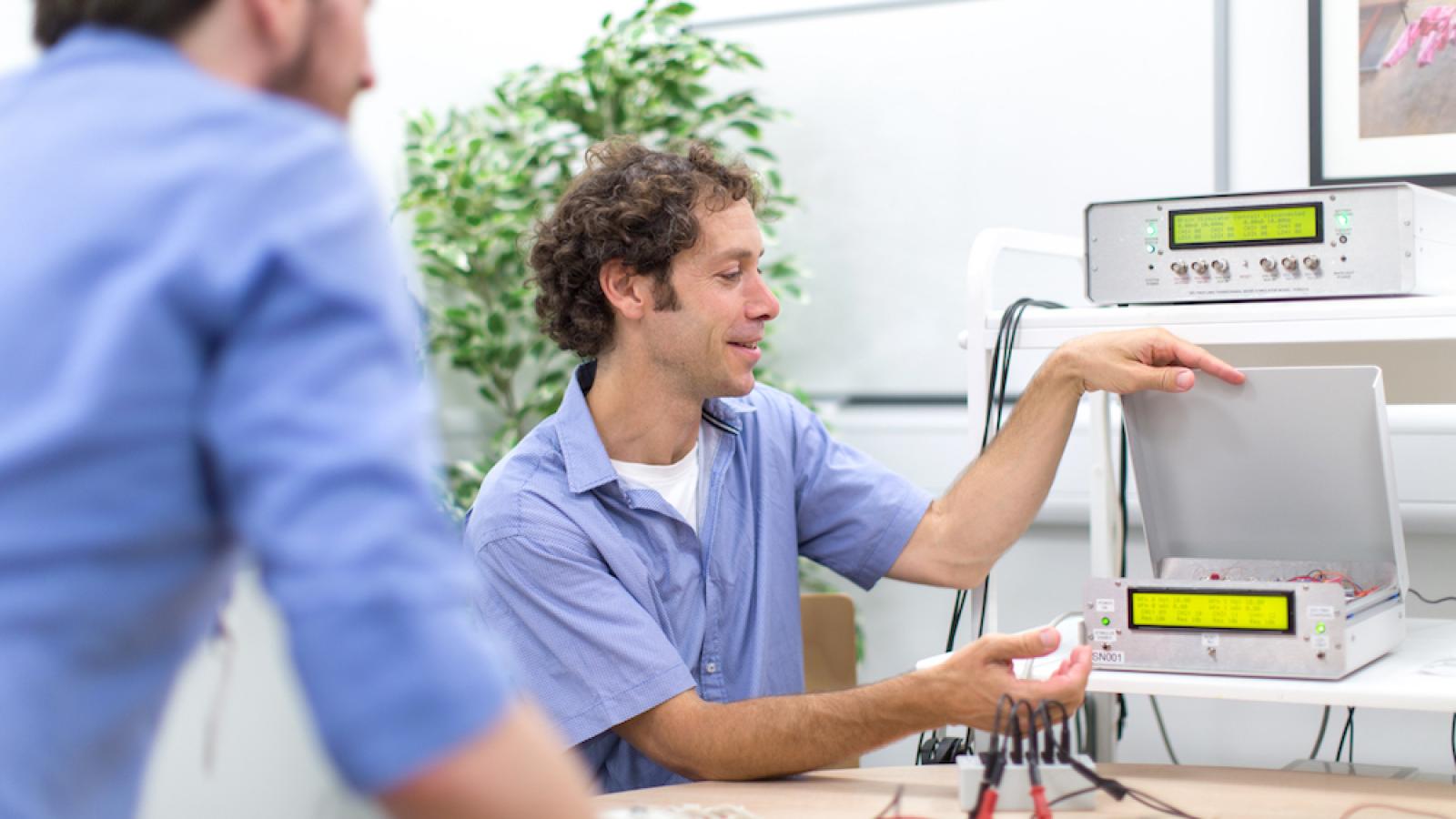The Advanced Research + Invention Agency (ARIA) has today awarded a £4m grant to Dr Nir Grossman (UK DRI at Imperial), as part of its new Precision Neurotechnologies programme. The programme aims to unlock new methods to interface with the human brain at the cellular level, with unprecedented precision. The hope is that significant progress in this area could lead to breakthroughs in treating neurological conditions such as Parkinson’s.
In a cross-centre collaboration with Dr Sam Barnes (UK DRI at Imperial) and Prof Timothy Constandinou (UK DRI Care Research & Technology), as well as Prof Rylie Green (Imperial) and Prof Andrew Jackson (Newcastle University), Dr Grossman aims to develop a minimally invasive brain stimulation technology, capable of precisely stimulating multiple deep brain regions implicated in neurodegenerative diseases, such as the substantia nigra affected in Parkinson’s. The project’s remit is to provide proof-of-concept success in animal models.
The new project builds on previous work led by Dr Grossman, who developed, and is in the process of human testing, temporal interference (TI) brain stimulation technology as an alternative treatment option to traditional deep brain stimulation for brain diseases, which requires electrodes to be implanted deep in the brain, carrying greater risk and complications.
Our project brings together a team of diverse expertise, from physics and electrical engineering, through to material sciences and systems neuroscience. Yet, we share the same desire to develop technologies to help the millions of people around the world affected by neurodegenerative conditions. Bringing together our expertise, we hope to develop our TI concept into a powerful technology that can precisely stimulate any area of the brain.
Group Leader
The Precision Neurotechnologies programme is backed by £69 million over four years, and will see 18 teams explore and unlock new methods to interface with the human brain at the circuit level, in order to understand, identify, and treat neurological and neuropsychiatric disorders with unprecedented precision. Led by Programme Director Jacques Carolan, the programme will unite the frontiers of engineered biology and hardware to treat many of the most complex and devastating brain disorders affecting individuals and communities worldwide.

